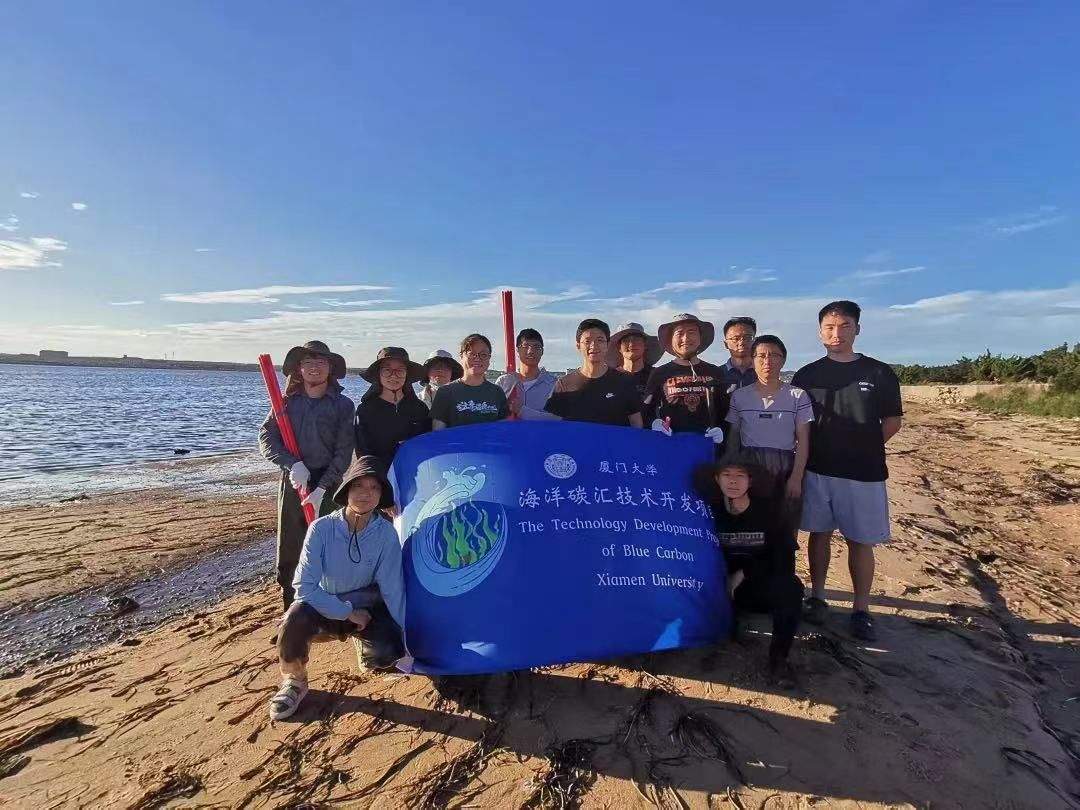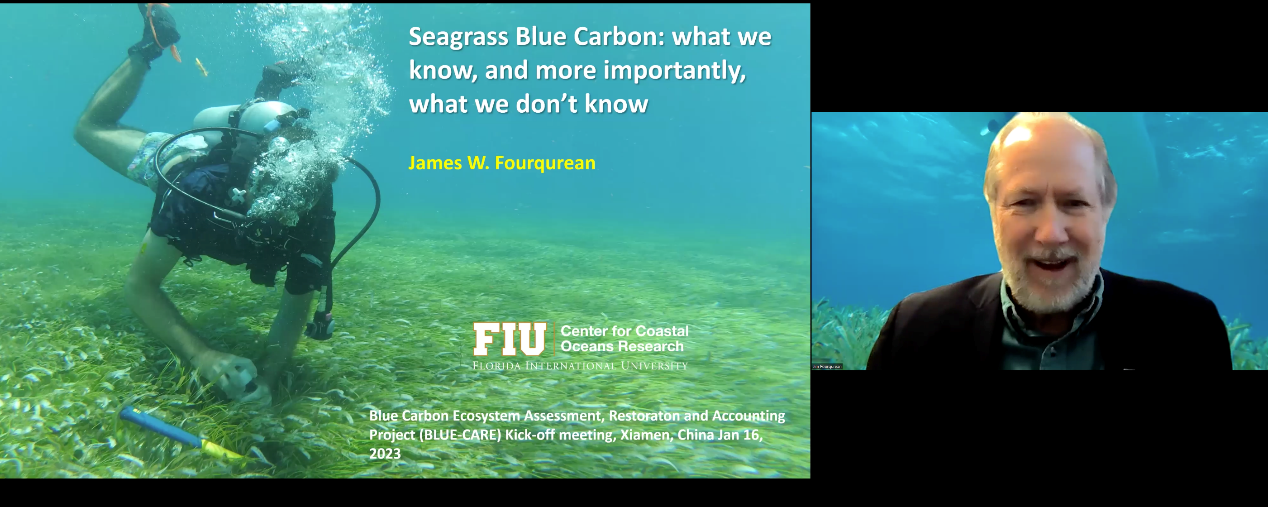On 16 Jan 2023, the BLUE-CARE project, or "Blue Carbon Ecosystem Assessment, Restoration and Accounting Project", successfully held its kick-off meeting and the 1st Advisory Committee Meeting. The International Advisory Committee of BLUE-CARE has also been launched. It currently consists of nine members, including two co-chairs, from five countries and aims to provide strategic advice to BLUE-CARE’s management.

Group photo
Blue carbon ecosystems – mangroves, seagrasses, and salt marshes– are highly productive coastal ecosystems that are particularly important for their carbon sequestration capacity, and are thereby considered a key component of nature-based solutions to climate change. As one of Coastal-SOS’s demo projects, Xiamen University and Tencent co-initiated the BLUE-CARE project, partnering with leading research institutes and non-governmental organizations. Focusing on the carbon cycles of typical seagrasses and salt marshes in China, the generated knowledge will be used to develop methodologies for accounting carbon sinks and credits of these ecosystems. Specifically, the project will select two demo sites to perform seagrass restoration, whose carbon credits will be used for Tencent’s blue carbon trading. The ultimate goal of BLUE-CARE is to provide guidance for carbon sink measurement and monitoring practices in China's blue carbon trading.

Dr James Fourqurean giving an invited speech
As opening, Dr Minhan Dai, lead scientist of BLUE-CARE delivered the opening remarks, introducing the team members and Advisory Committee members. Dr Yongping Zhai, carbon neutral senior consultant of Tencent gave a warm welcome to all participants, emphasizing cross-sectoral partnership was vital for BLUE-CARE. Dr James Fourqurean, chair of Advisory Committee gave an invited speech on seagrass and blue carbon. After the opening speech, project team members introduced the overall design and essential work packages of BLUE-CARE. These presentations stimulated heated discussion among Advisory Committee members. They recommended strengthening the connection between BLUE-CARE and other components, e.g. policy arena, international community and mangrove projects.
The Advisory Committee was universally impressed with the ambition of BLUE-CARE. We hope that the project will lead to an increase in our understanding of carbon cycling and ecosystem restoration in seagrasses and salt marshes in China.


